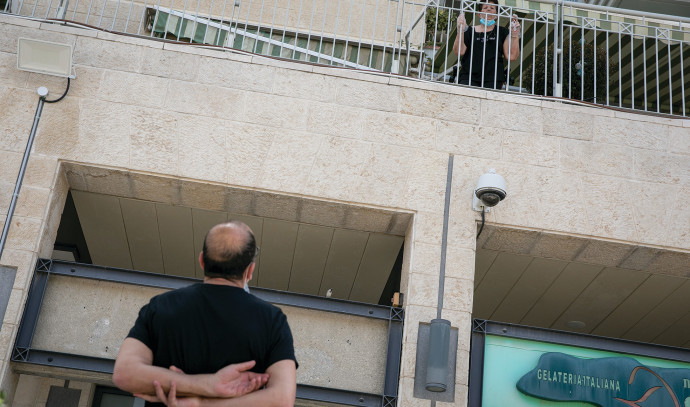I’ve written about this previously, that Britain’s late chief rabbi Lord Jonathan Sacks, in his weekly article on the Torah portion, wrote about “The Courage to Admit Mistakes.” He wrote: “Some years ago I was visited by the then-American ambassador to the Court of St James, Philip Lader. He told me of a fascinating project he and his wife had initiated in 1981.
“They had come to realize that many of their contemporaries would find themselves in positions of influence and power in the not-too-distant future. He thought it would be useful and creative if they were to come together for a study retreat every so often to share ideas, listen to experts and form friendships, thinking through collectively the challenges they would face in the coming years. So they created what they called Renaissance Weekends.”
They still happen. The most interesting thing he told me was that they discovered that the participants, all exceptionally gifted people, found one thing particularly difficult, namely, admitting that they made mistakes.”
How many of us can admit that we are wrong? Personally, I can’t remember the last time I made a mistake. Don’t believe me? Just ask my kids or better yet, my wife. For sure she will confirm that I lead a mistake-free life!
When it comes to retirement I have seen investors make the same mistakes over and over again. Here are some of the more common mistakes I’ve seen, and if you want to have secure financial retirement, it would behoove you to avoid these
Another toaster
In the quest for that free toaster that used to come with opening a new bank account, too often I meet with retirees that have multiple investment and savings accounts with different firms, which makes it difficult to supervise and evaluate.
A few weeks ago, I met with an adult child of an older couple. She explained to me that her parents had multiple accounts, and that after making aliyah they no longer had paperwork and statements for each account, and were at a loss as to where all their money was.
Not only does having so many accounts make it complicated to get a full financial picture, it can wreak havoc when the retiree gets older and may not be able to stay in control of the accounts or worse, forgets that the accounts even exist. Especially in the current climate when many firms are purging accounts of American’s living abroad, if you don’t know where your accounts are, you could be in for trouble.
I know of many cases where this has happened and ultimately the accounts get sent to unclaimed property, and that’s when the fun really starts.
It will then take a lot of time, patience and even some money, to free up the funds. As you get older it’s imperative to consolidate accounts, and to try and keep things as simple as possible.
Miscalculating
Conventional wisdom is that when you retire you need between 70-80% of your pre-retirement income to make ends meet. That may be true for some, but from my experience and especially in Israel, I have found that you need the same amount or even more money on a monthly basis during retirement.
You may want to help out your children and grandchildren with braces, pay for after-school extracurricular activities, and taking the family away for a few days in the summer. And let’s not forget that many of the things that you may want to do during retirement aren’t free, e.g. travel, dining out etc.
Stubbornly retaining control
As retirees age, they usually don’t add someone to the account to execute changes on their behalf. Twice this week I had meetings where there was only one individual as an account holder. I advise retirees to give a child or a trusted confidant trading authority.
This way, if the client can’t fully supervise the account, it doesn’t become frozen.
More than once, I have seen a case where an older client had an individual account and took ill.
They were unable to execute any instructions in their account. This is the time when access to money is extremely crucial, and since the individual is the only one with any authority over the account, the money becomes as good as frozen.
There are many ways to provide for checks and balances. Perhaps you will want to require two signatures from a list of three possible signers. Perhaps you draw up a power of attorney.
Consult with your family and advisers to devise a plan and instruments that work for you to give signing authority to someone.
Swallow your pride and correct your mistakes, so that you can have a financially sound retirement.
The information contained in this article reflects the opinion of the author and not necessarily the opinion of Portfolio Resources Group, Inc. or its affiliates.
Aaron Katsman is the author of Retirement GPS: How to Navigate Your Way to A Secure Financial Future with Global Investing. www.gpsinvestor.com; [email protected].



